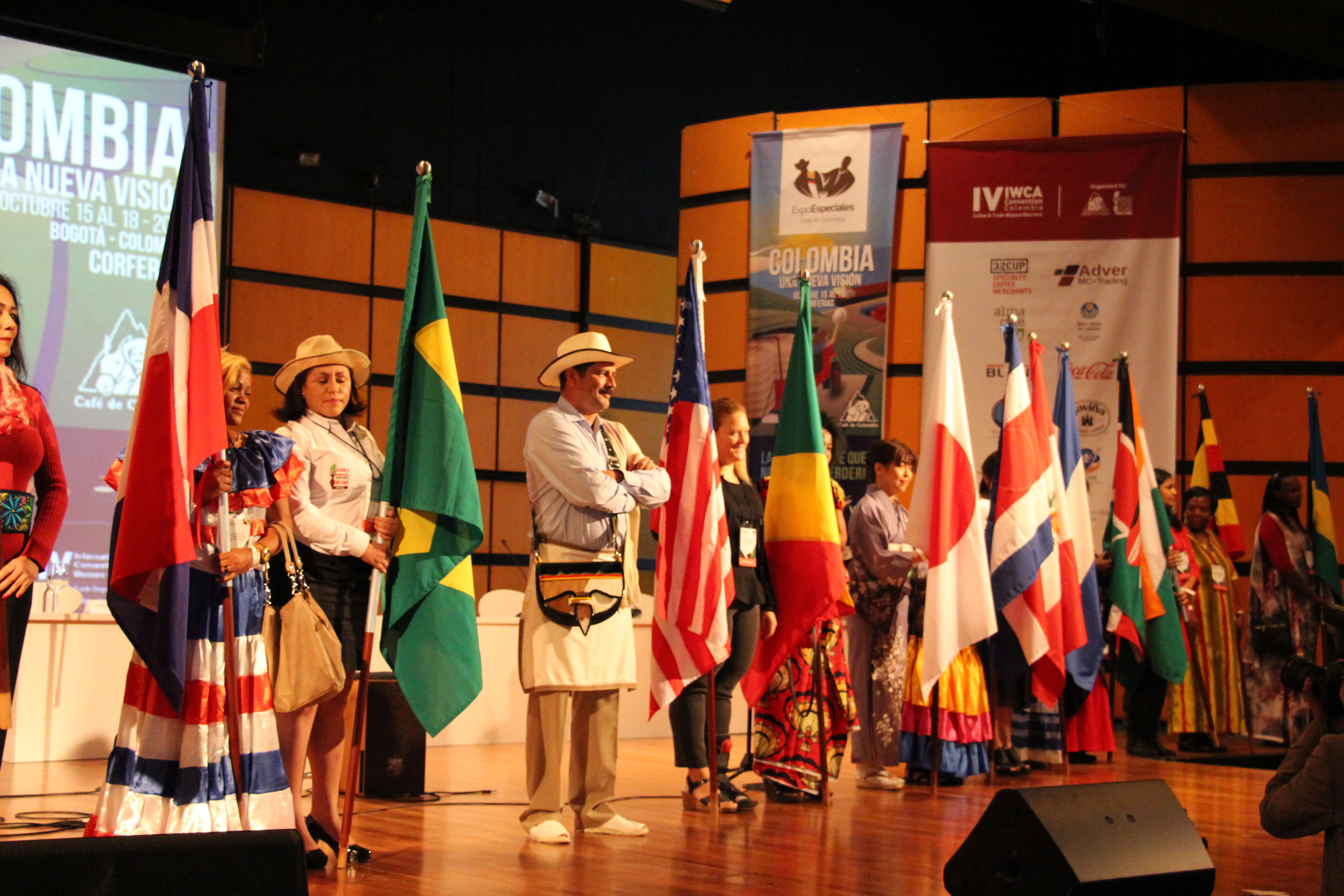Ten coffees later and I’m back at home, writing this blog before I lose the adrenaline from the first day of Expoespeciales – the Colombian specialty coffee fair, this year hosted in Bogota.
The day included an official opening ceremony, speeches and press conferences, plus the start of the barista and coffee tasting competitions. It was also an occasion to catch up with coffee friends such as Astrid Medina from Gaitania, winner of the 2015 Colombian Cup of Excellence and Andres from Don Danilo Coffee, Marsella.
The two main messages of the conference were clear.
First, according to Roberto Vélez Vallejo, head of the Colombian Coffee Growers’ Federation, Colombia did well to bet on ‘specialty coffee’ back in the 1990s. Now it has to focus even more on ‘sustainability’, highly sought after by European consumers. (Blog on this to follow).
Second, women play a key role in the coffee industry and it’s time to recognise their work and further strengthen their position.
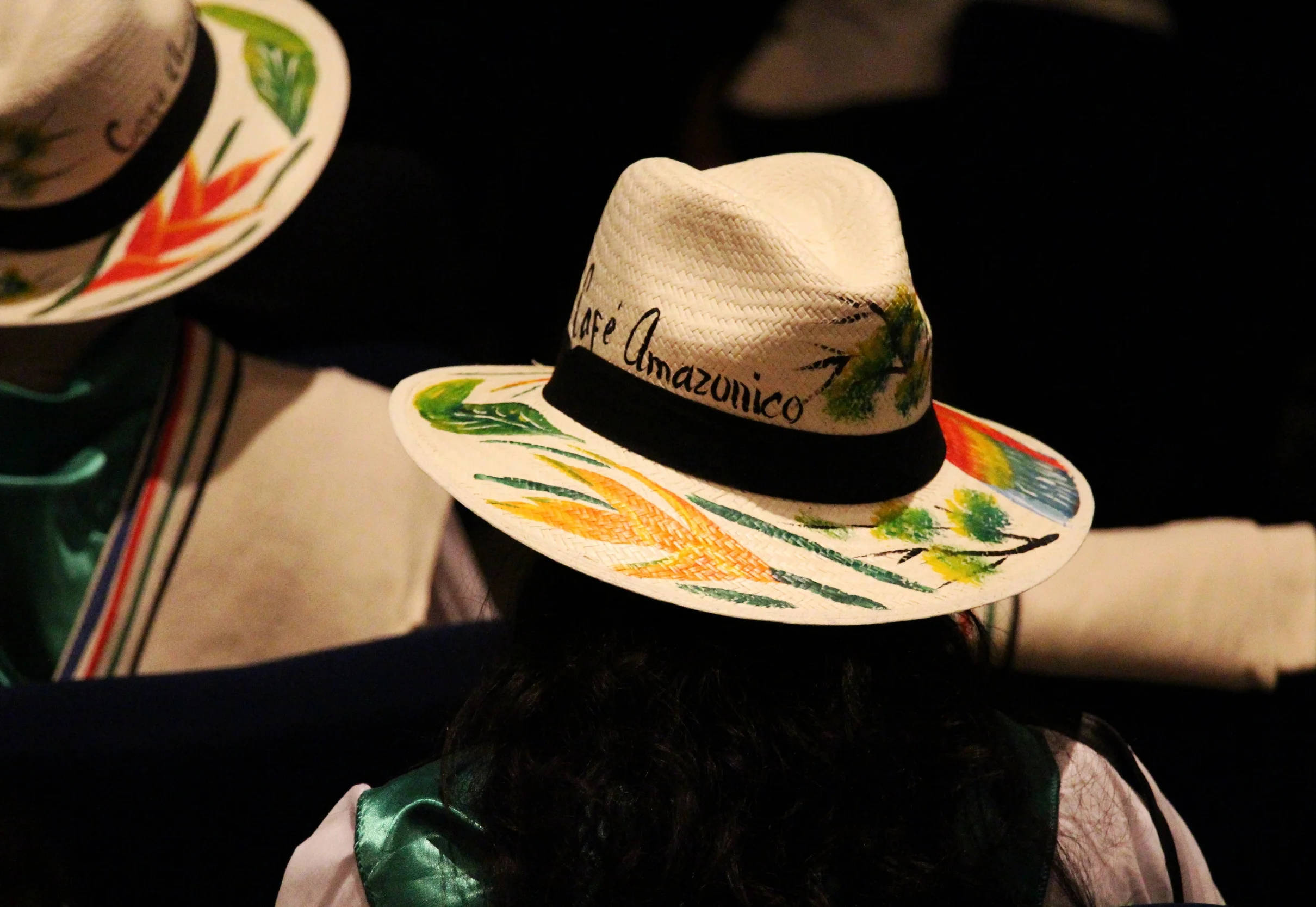
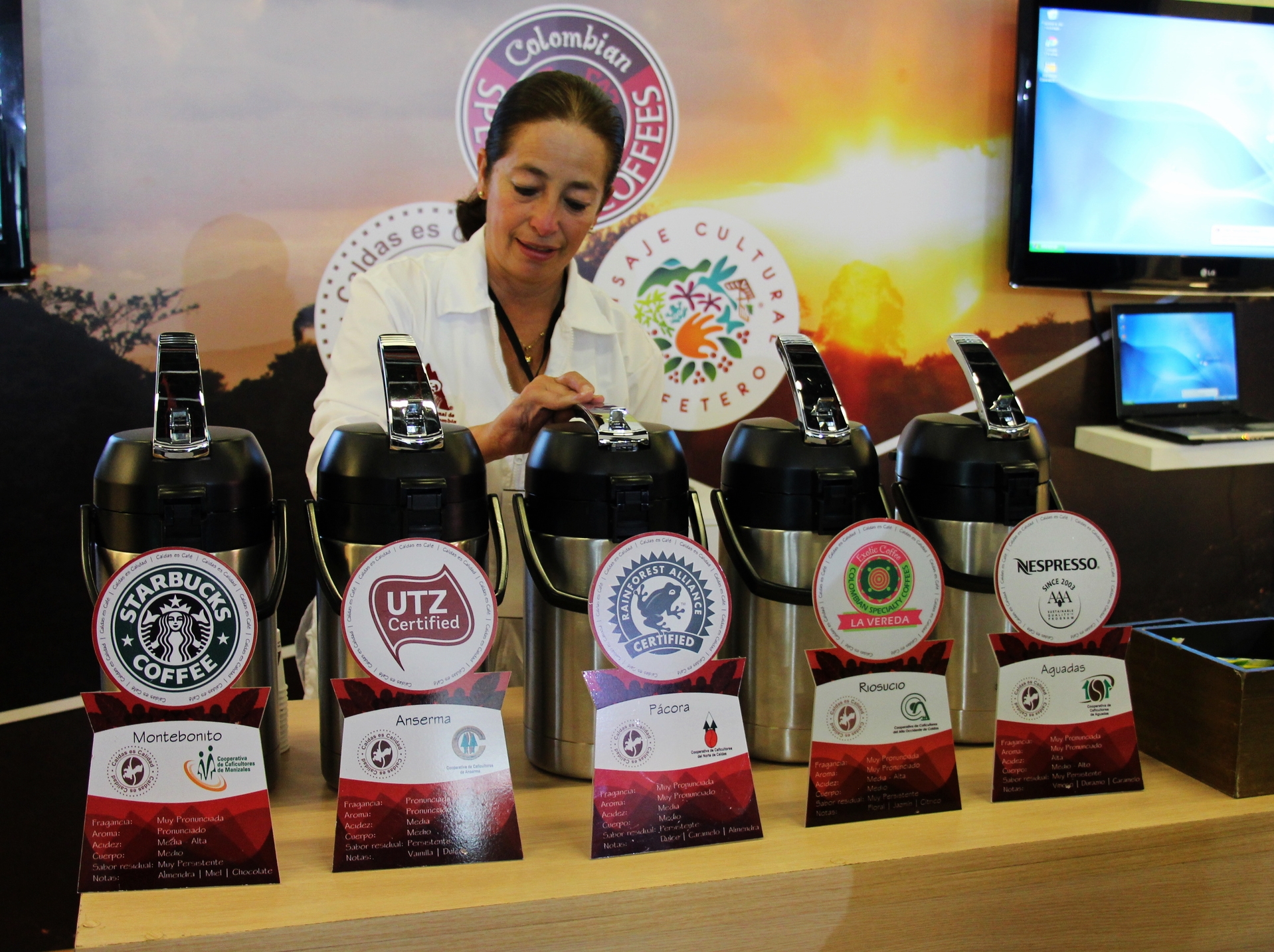
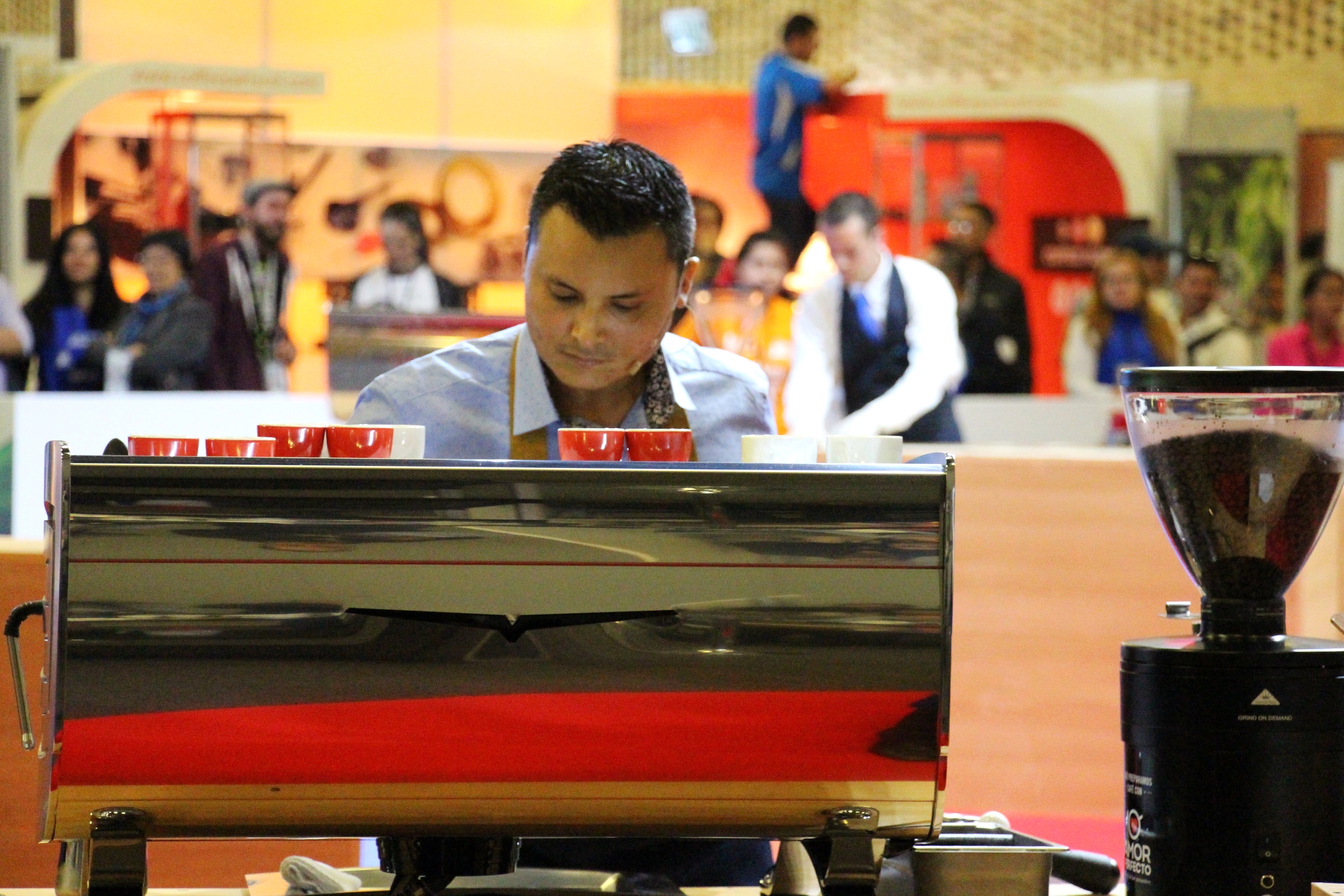
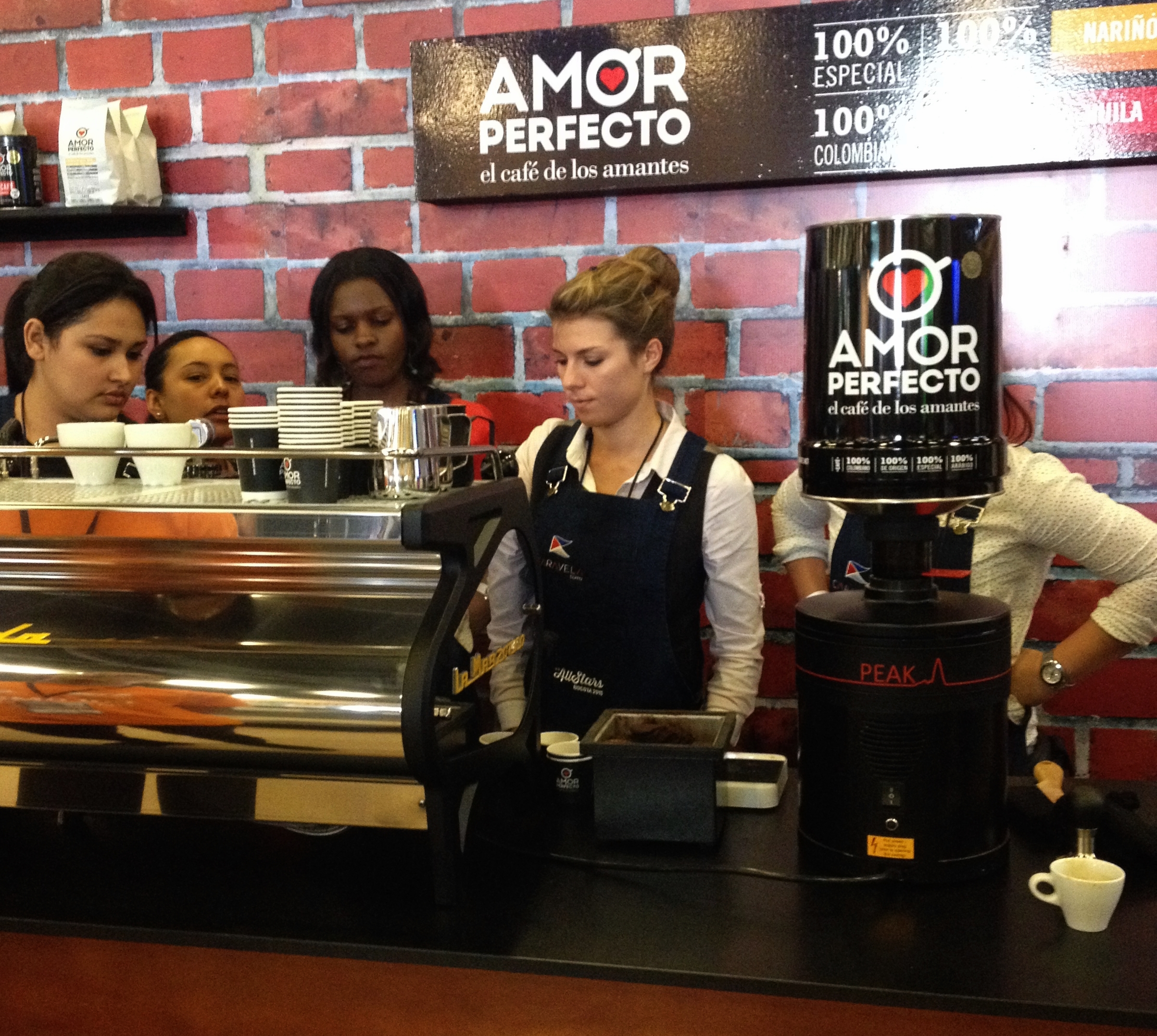

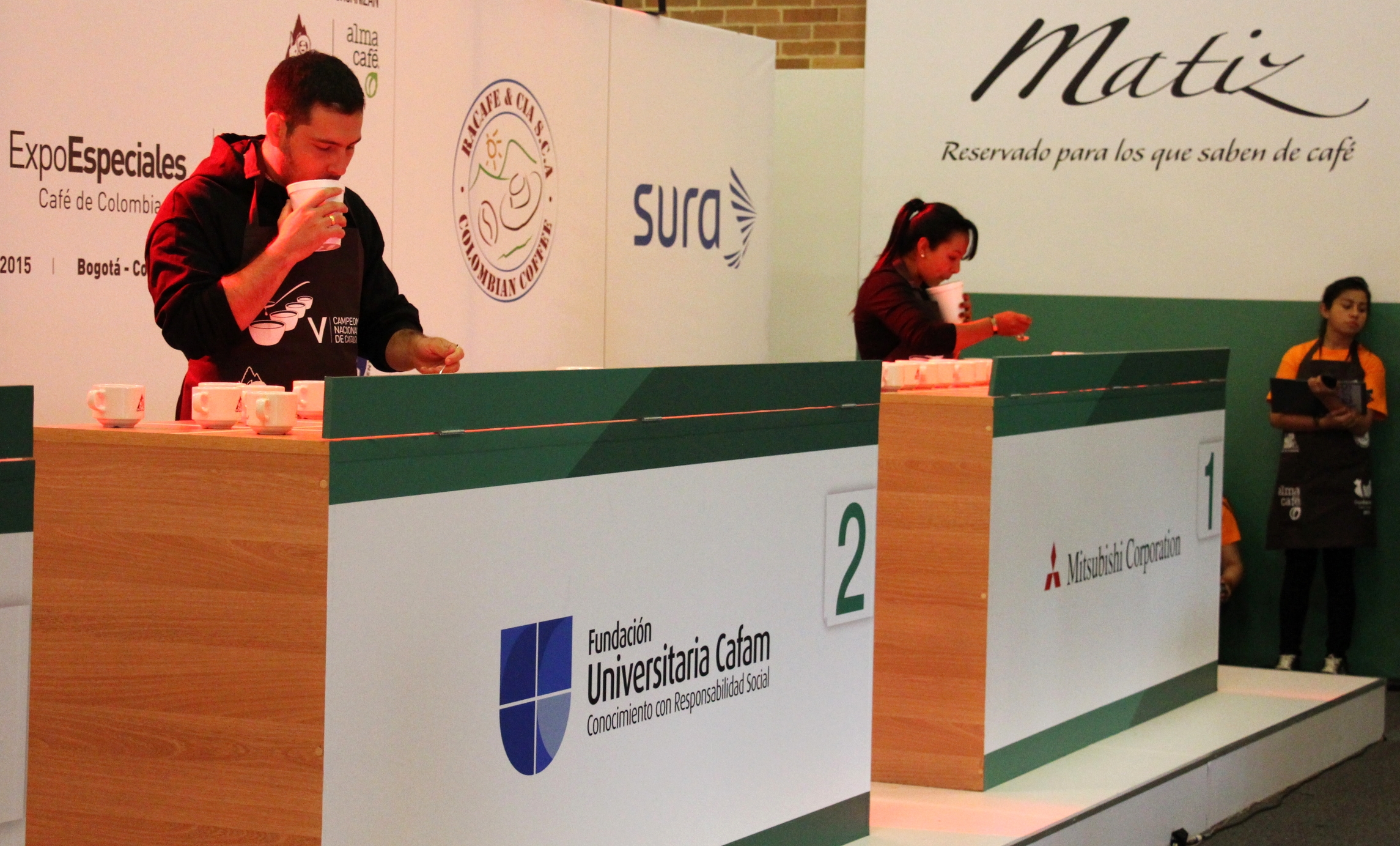
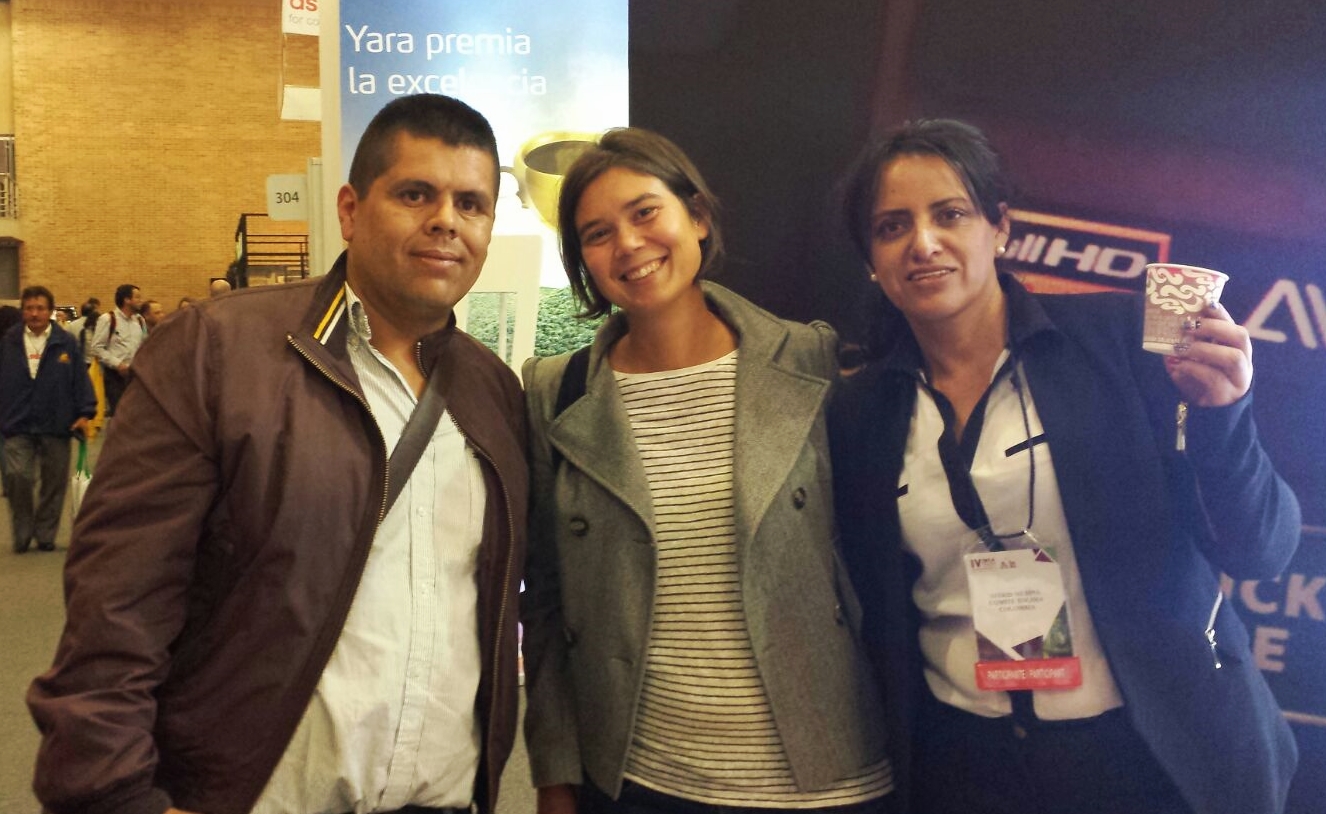
And there were ‘women in coffee’ everywhere at this year’s fair!
This was partly because it also played host to the International Women’s Coffee Alliance (IWCA) convention, bringing together women from 23 countries to discuss the current state of the coffee industry and how to improve conditions for women. It’s a relevant initiative, given that about 30% of Colombian coffee farms are owned by women.
However, as usual there’s a ‘but’.
Most women own small sized farms and a paternalistic approach still persists towards their work. Time and again I heard people saying that women are better than men at picking and processing coffee cherries because of their natural role as family carer.
While this might be true, isn’t it also worth recognising their business, associative and leadership skills?
At the event I heard women in the audience asking for more structured and coherent public policies to support their work, as well as debates about the price of coffee at origin. To me, these determined women from several continents seemed very knowledgeable of all aspects of the coffee business.
And as the President of the IWCA, Mary Santos, said - women are deeply involved in the coffee industry, ‘from the seed to the cup’.
Back at home, the image of the fair’s opening event remained in my mind: the iconic Juan Valdez surrounded by women farmers from across the globe. Although I’m definitely a big fan of Juan, isn’t it time for Colombia to also have a female figure representing its coffee industry? Is the sector mature enough?

